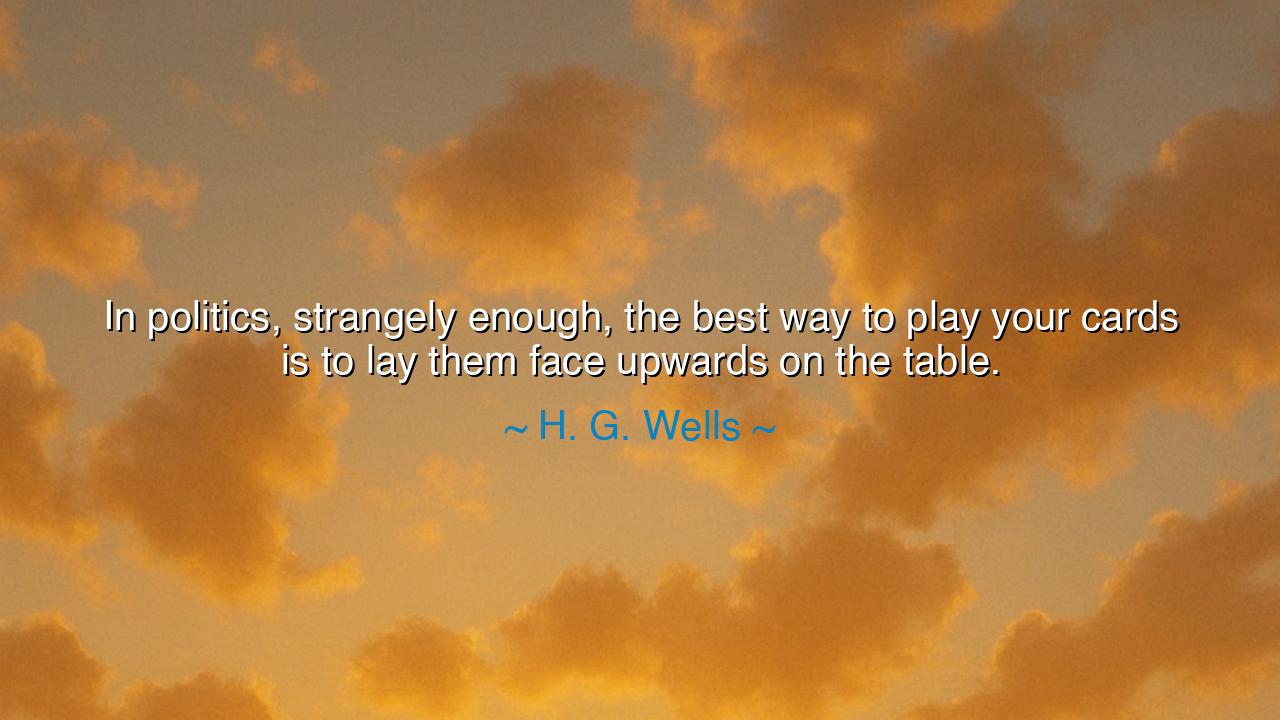
In politics, strangely enough, the best way to play your cards
In politics, strangely enough, the best way to play your cards is to lay them face upwards on the table.






The words of H. G. Wells, “In politics, strangely enough, the best way to play your cards is to lay them face upwards on the table,” carry the fragrance of wisdom distilled from long observation. Though the world of politics is often thought to be a realm of secrecy, cunning, and veiled intentions, Wells dares to proclaim the power of openness. He reminds us that in the contest of hearts and nations, clarity can be stronger than deception, and honesty more commanding than intrigue. Like a warrior who casts aside trickery and enters battle with only his courage and sword, so too may a leader find strength in showing his intentions plainly.
This truth resounds through history. Consider Abraham Lincoln, who, in the heat of the American Civil War, refused to disguise his aims. He spoke plainly of liberty, of union, of the necessity to end slavery. Many counseled him to tread more carefully, to cloak his intentions so as not to rouse his enemies further. Yet Lincoln laid his cards face upwards before his people and the world. In doing so, he won not only battles of armies but also the deeper battle of moral conviction. His transparency became his strength, and through it, a broken nation was guided toward healing.
The paradox is thus revealed: what seems like weakness in politics—the abandonment of masks—becomes a form of strength. For when one declares intentions boldly, enemies cannot twist them into shadows, nor can allies be left adrift in doubt. To lay the cards down is to seize the field with confidence, proclaiming: “This is where I stand, and here I shall remain.” Such openness strips away suspicion, allowing trust to take root, and trust is the soil from which enduring power grows.
Yet this is no easy path. The temptation of secrecy whispers always in the ears of rulers, promising advantage through concealment. But history has shown that schemes built on shadows crumble swiftly when light breaks upon them. The cards hidden too long rot in the hand, and the people, discovering deceit, turn their hearts away. Openness, though it risks defeat, preserves honor—and with honor comes the kind of victory that time itself cannot erode.
Therefore, let this teaching be passed on: in the realm of politics, as in the affairs of daily life, the bravest act is not to guard every secret, but to speak truth openly, to lay forth one’s purpose like shining steel upon the table. It is through such fearless clarity that leaders are remembered not as schemers, but as visionaries, not as deceivers, but as builders of worlds.






AAdministratorAdministrator
Welcome, honored guests. Please leave a comment, we will respond soon